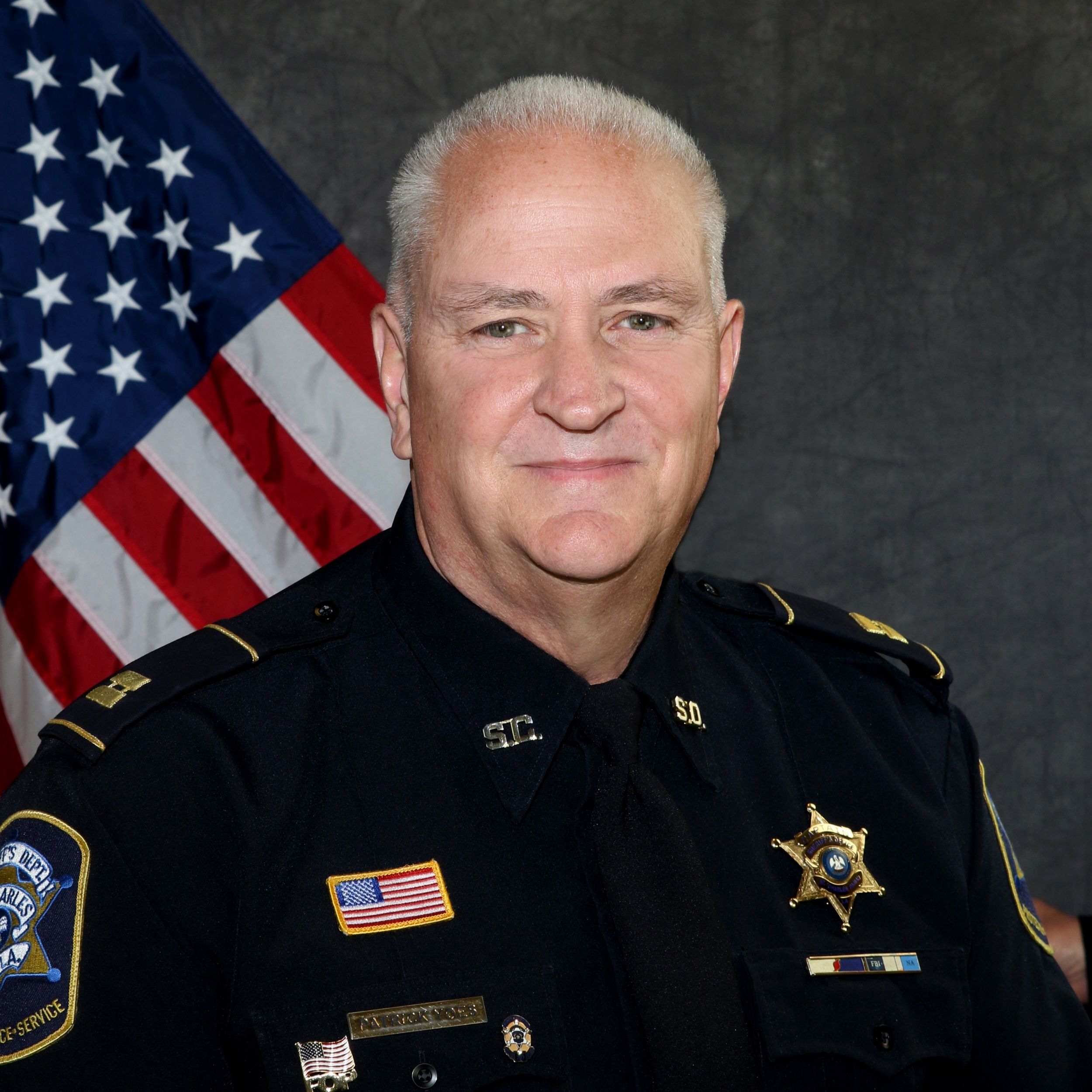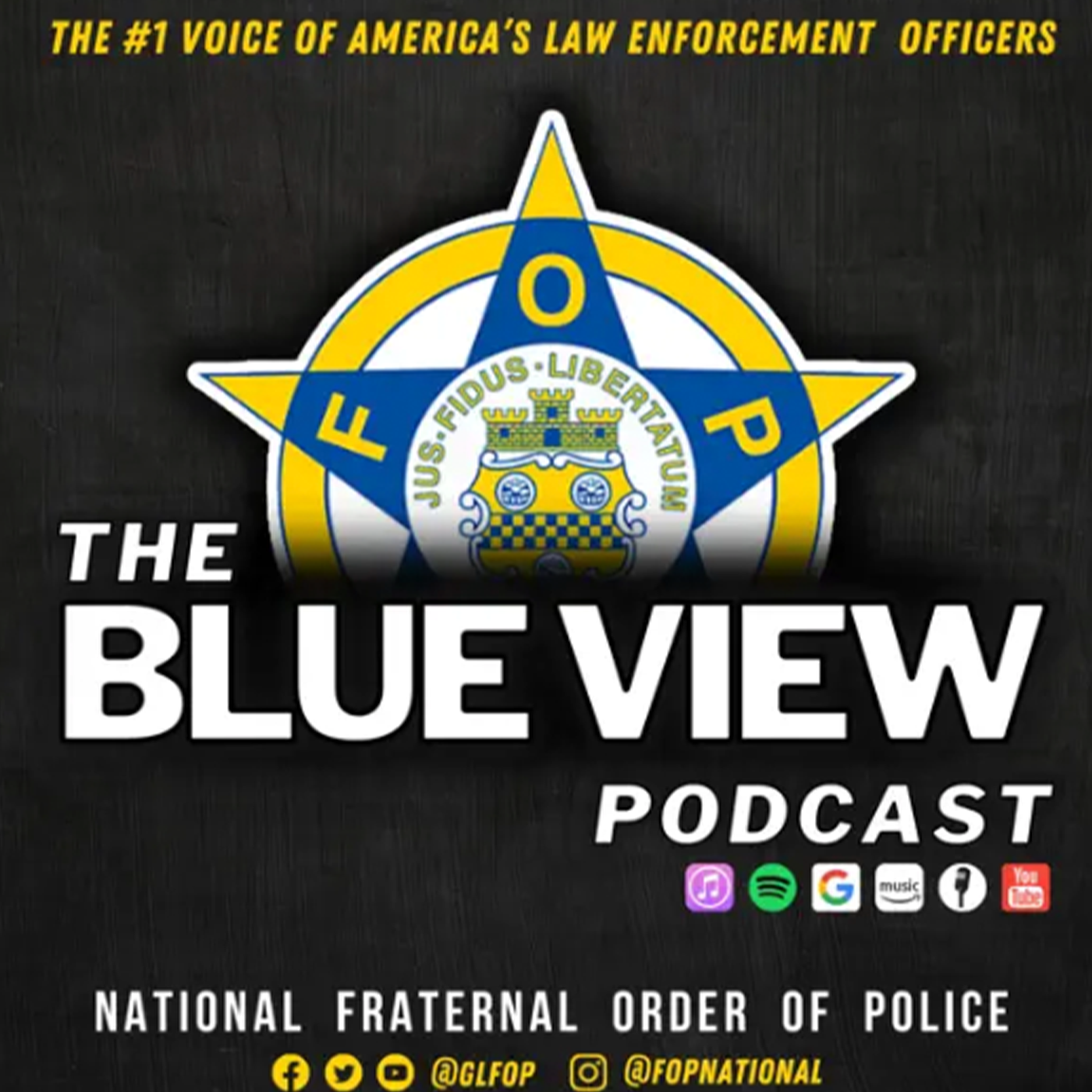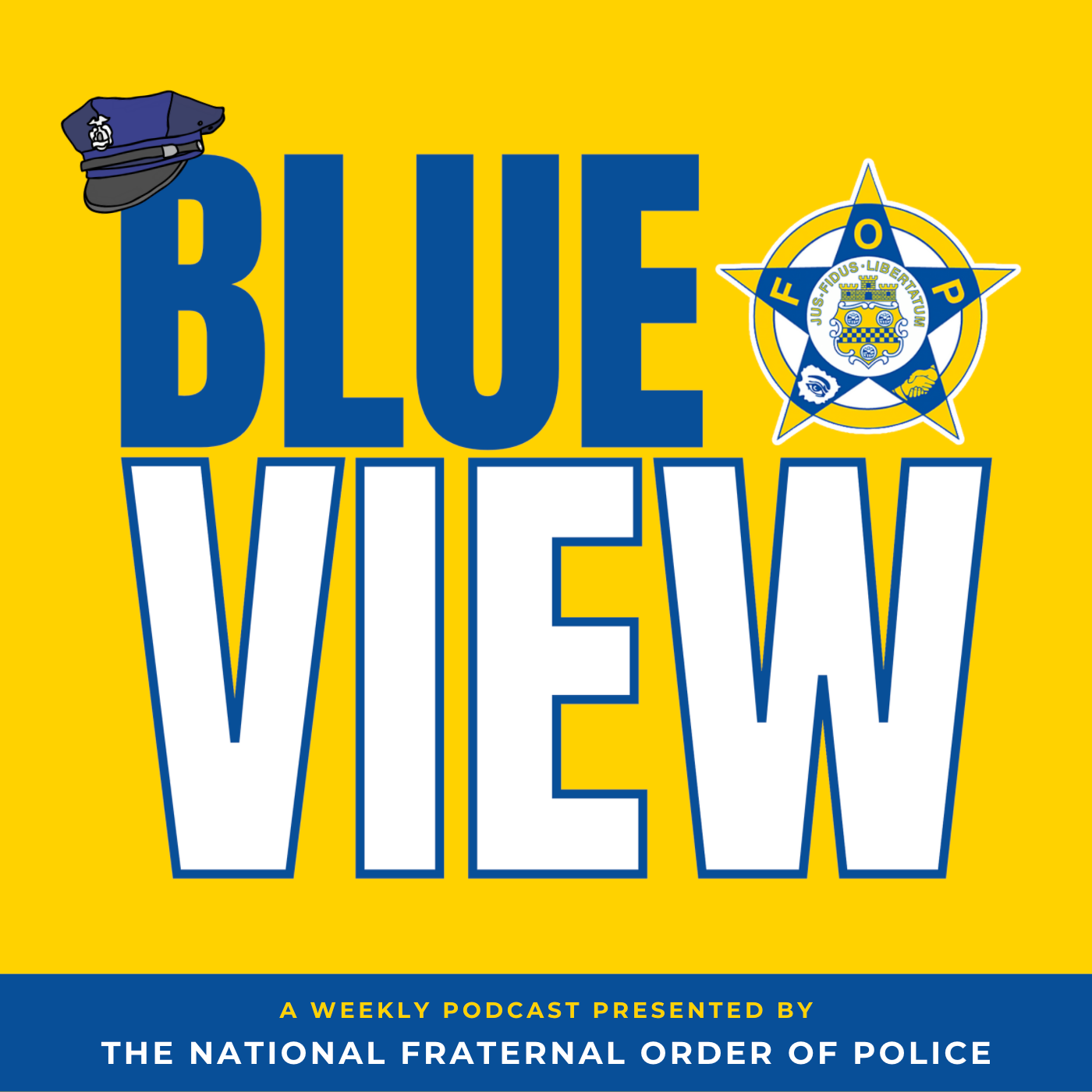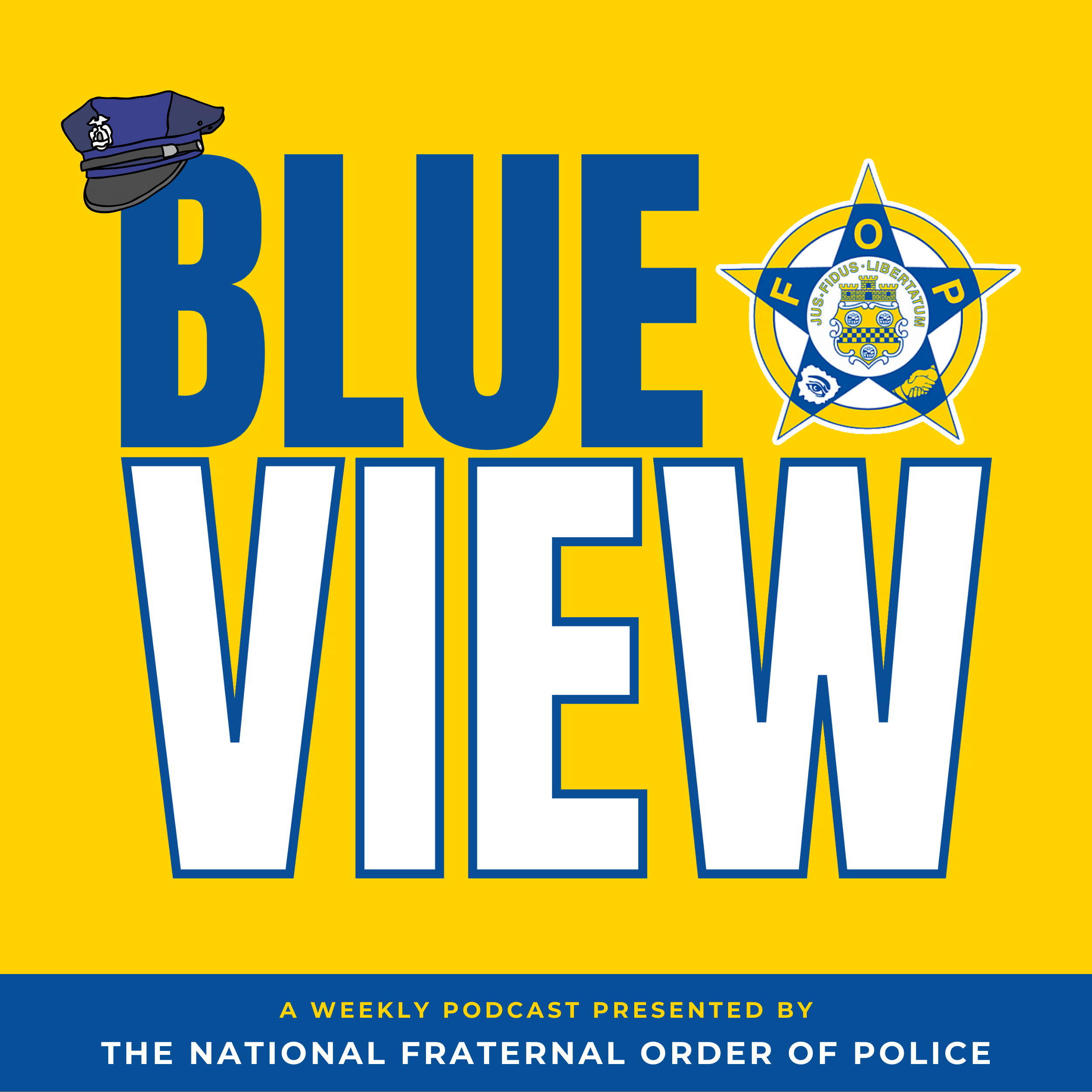Episode Transcript
[00:00:00] Speaker A: I am Patrick Yoes, national President of Paternal Order Police. This is the Blueview.
Okay. Well, Heather, thank you for taking some time to join us today.
I'm just curious. Somebody with a. With a history with the Department of Justice as a prosecutor and then eventually a deputy Attorney general, how does someone, you know, obviously, you get pulled to public service? What got you into public service, and how did you end up over at Uber?
[00:00:22] Speaker B: Oh, thank you so much for the question, and thank you for having me. I have been a huge fan of FOP for a long time. I know this is Police Week, and I used to participate in Police Week when I was at the Department of Justice, and so I think it's a really special time. Thank you for having me. It is true that I dedicated my life to public service, like yourself and members of your organization.
I was an Assistant United States Attorney. I was in leadership positions in the Department of Justice, and I get that from my family. My father was a police officer before I was born, and then he was a judge later on. His father and other grandfathers were in the military. My sister's in the Air Force. And so I come from a family of public servants.
And I will say that now, being in the private sector, I obviously work for Uber. I do think I have the best job in the public sector for somebody who loves public service, because everybody knows what Uber is. People call cars or order food all over the world and the reach of a company like this to make people's lives better and safer and more convenient, and to give people ways to earn money to help their families when they need it. By driving for Uber or being a courier on Uber, I think is really special and frankly, keeps me here. And it's sort of a way to engage in that public service on a platform like Uber.
[00:01:45] Speaker A: Yep. Well, there's no question you've got to be living under a rock if you don't know what Uber is.
[00:01:50] Speaker B: Right?
[00:01:51] Speaker A: I use them quite often. Quite often. You know, law enforcement wise, you know, we look at visibility, you know, a whole force multiplier when it comes to policing is community engagement. And, you know, there's nothing's more visible than Uber. There are a lot of resources that are available to law enforcement to work with Uber as well. So why don't we just dive right into those, you know, our members are, you know, work pushing squad cars every day, listening to this podcast or watching it. Let's. Let's give them a little background on how Uber and a partnership with Uber and law enforcement can make our community safer.
[00:02:25] Speaker B: Oh, absolutely.
Personally, it's very important to me that Uber fulfills what I believe is an obligation to keep our customers and our communities at large safe. And so we have a team of people, many of them are former law enforcement who work here at Uber in order to do just that. And this is a team that operates 24 hours a day, seven days a week, all around the world to answer a call when there is a place where Uber can help solve a crime, recover somebody who's missing, stop a carjacking, find somebody who committed a homicide. That's why we operate 247 and we partner with police to get information that police and your members need in order to solve crimes. And one of the primary ways we do that is through a website.
It's called LRT Law Enforcement Response Team. L e r t.uber.com and it's where you can go online and submit a request for information that Uber may have that can help you solve a crime. And you can send a subpoena, a search warrant, a court order through this website and get a response very quickly. We also handle emergencies because I know from my days at the Department of Justice and for all the police who are watching this podcast, there are times when you don't have time to get a court order. Right. Because someone's been kidnapped or you're fast moving, trying to find a perp. And if Uber can help in that situation, we treat those like an emergency. You can write in through our website, request information, and we'll get back to you within a couple of hours in those emergency situations. And so that's what our team does. As you can imagine, Uber has a lot of information about things going on in the world. You know, we operate in 73 countries.
Every second, 350 people are getting in and out of an Uber somewhere in the world. And so the reach is massive. And so sometimes we can. Not all the time, but a lot of times we can have information that can help solve a crime. And we're here to do that.
[00:04:29] Speaker A: Yeah. So talk about, if you could, some of the examples of where Uber and relationship with Uber and law enforcement has helped solve crimes in communities.
[00:04:39] Speaker B: Oh, I would love to. I have so many examples. And so just last. Earlier last year, we had a case in Connecticut where we unfortunately had somebody who was using Uber to traffic young girls, basically, and make child pornography. And we figured this out on our own because in addition to the people who work 24 hours a day responding to police requests, we also have a group of former law enforcement who get to do their law enforcement job inside Uber, and they look for crime that Uber, you know, may have knowledge about if we. If we looked really, really hard. And then they piece together evidence about that and give it to law enforcement for prosecutions. And so in this particular example, there was an individual in Connecticut who. Who are using Uber cars to take young girls to seedy motels and make child pornography. And we noticed a pattern on our platform of cars going from group homes for young people to these seedy motels on a regular basis. And we were able to call the F.B.I. in that case, who ended in. We directed them to a time when this person had taken an Uber to a hotel with some girls, and they were able to arrest the guy as he was jumping out the window and rescue a couple of victims at the same time. That's a case that happened recently.
We've also been called to help in national security and terrorism cases.
So a few years ago, there was a terrorist who had been in Syria and had a really horrible situation, had actually executed some journalists and put them on YouTube where people could see.
And then he had been on a wanted list for a really long time. And. And in 2020, the Spanish authorities suspected him from moving from Syria to Spain. And so they contacted Uber with all sorts of aliases for this person who was a known terrorist, who had made videos with his terrorist act. And we were able to piece together that information to find him in, like, a remote village in Spain. And they were able to arrest him. And it's because he used ordered Eats to order. He used Uber Eats to order kebabs. And so these are just some examples of how, you know, Uber may have some information that you may not think about, but when used in a creative way, can solve some really complex crimes. And if you have time, I'll give you one more example. That's actually pretty much it.
Go ahead.
[00:07:03] Speaker A: No, absolutely. I'd love to hear it.
[00:07:06] Speaker B: So I'll give a third example, because I love giving examples so that police can know sort of how they can use our information to solve important crimes.
A third one is elder fraud. I'm sure your members see this a lot. A fraudster calls an elderly person and pretends to be someone else, pretends to be their grandson, pretends to be their nephew or whatever, tells them they're in trouble and they need cash. Right? You've seen this a million times. And they end up stealing the life savings of some of these people through these fraudulent calls. We figured out a few months ago that fraudsters had been Using Uber. The Uber drivers didn't know what was going on, but had called an Uber to go pick up cash from elderly people they were defrauding and take it back to them so that they wouldn't even have to show up to collect the fraudulent proceeds. And so our team of former law enforcement figured out a pattern of what this looked like when somebody called a trip that looked like it was probably going to be elder fraud and elder abuse and created an alert in the Uber technology system so that we're alerted when something like that is about to happen. And then we get on the phone and we call the local police, we call the victim, and we're able to stop the crime from happening. I mean, in just the past few months, we have done this for 97 victims in the United States. We've recovered $600,000 in life savings that otherwise would have been stolen. And there's been a slew of people arrested as a result. So it's not necessarily everything you think about that can happen on the Uber platform.
[00:08:37] Speaker A: I can see a number, a number of applications where we're working crimes of people in specific areas. Just simply recognizing that they were in those areas would be very helpful in piecing together, you know, local crimes.
[00:08:49] Speaker B: Can we get that a lot?
[00:08:50] Speaker A: It'd be another aspect as well, which would be very. Yeah, I would imagine so.
So I'm curious, you know, you talked about the fast track. Obviously there are court orders and have rights to privacy as well, and we respect that. But at the same time, when there's an emerg situation, we need to, we need information, we need it quick because time is, time is valuable when it comes to safety.
Talk a little bit about the expedited process of trying to piece these things together in very, very critical, time sensitive situations.
[00:09:21] Speaker B: Sure.
So like I said, we have a website and so police all across the United States can use the website to submit a request for information in an emergency situation. So we're talking like imminent threat of death or bodily injury, you know, an emergency situation under the law, you can tell us what the situation is. And frankly, the more information you give us, the better. Because on the back end we have 24 hour experts who are taking that and they take it, they can tell it's emergency and they put it in our fast track queue so that we get back to you as soon as possible.
It'll usually be under two hours when we get back to you. And at the same time we have a small group of former highly trained law enforcement who look at those Very serious cases. And see if there's something that we have that you don't even know you need, that you know, like maybe we have something about a person or where they've been, or data that you don't even know to ask for. But if we can help solve that case, we will call you and give it to you. And so there have been many cases where a police officer will give us their request for information. We've had kidnappings. We actually had an officer who was shot and killed in Chicago last year, where we were able to help find the person who did that, the murderer, in this emergency situation, because we saw it was such a serious and horrible event. And so we do have people not only responding quickly, but we have people in the background looking at the case to make sure we're giving everything that's needed to solve these really horrific violent crimes.
[00:10:55] Speaker A: Great.
We appreciate that. Appreciate that. Help.
If an agency. Agencies, obviously there's a lot of tools here, and I'm not too sure many of them realize that there's availability of it. Does Uber offer any type of training for agencies that would be helpful on a larger scale to get this information out?
[00:11:17] Speaker B: We do, we do. If it's needed. I will say that.
Oh, I'm sorry. Can you hear me okay?
[00:11:25] Speaker A: Yeah, a little bit of lag. I'm sure you've probably seen the same thing on our side. It's a little bit of a gap in between. I think we're recording. That's not the issue. But I wasn't sure if it disconnected there. So we're good. We'll cut this part out.
[00:11:38] Speaker B: Okay, great.
Yes. So we can do that. You can request that through our website. But to be honest, I think our website is easy enough to use and provides enough information that most people have found it very simple.
So we have provided training. We're happy to, but the experience is actually pretty straightforward. And you'll get a call right away if you have an emergency that necessitates one.
[00:12:04] Speaker A: Great. If someone. Again, I know you gave the address before, but let's finish up with that as well. If somebody wants more information on how they can use the resources of Uber in local law enforcement, give them that information one more time.
[00:12:18] Speaker B: Sure.
LRT L E R T.uber.com okay, great.
[00:12:24] Speaker A: Heather, thank you for taking some time to share this information with us. A very valuable tool. Look, I do know this. You know, there's a lot of chase, a lot of challenges facing our communities across this country. And the only way we're going to we're going to get ahead of this is when we work collectively towards a common goal and that's public safety, safety of those people we serve both public and private sector. So thank you. Thank you for this resource and we appreciate you sharing some time with us so we can share that with our members as well.
[00:12:52] Speaker B: Thank you.
[00:12:53] Speaker A: Absolutely. Thank you to our members. Tuning into the we appreciate you turning into tuning into the Blueview podcast where we talk about the issues that are so vitally important to the men and women who suit up and show up every day in communities across this country and make a difference in the lives of those people we serve. Thank you.
Be sure to subscribe on Apple Podcasts, Spotify or anywhere else to get your podcast. To get the latest from the National FLO tape, make sure to follow us on Twitter and Facebook at GLFOP and on Instagram @FOP National. Thanks again. We'll see you next time.




